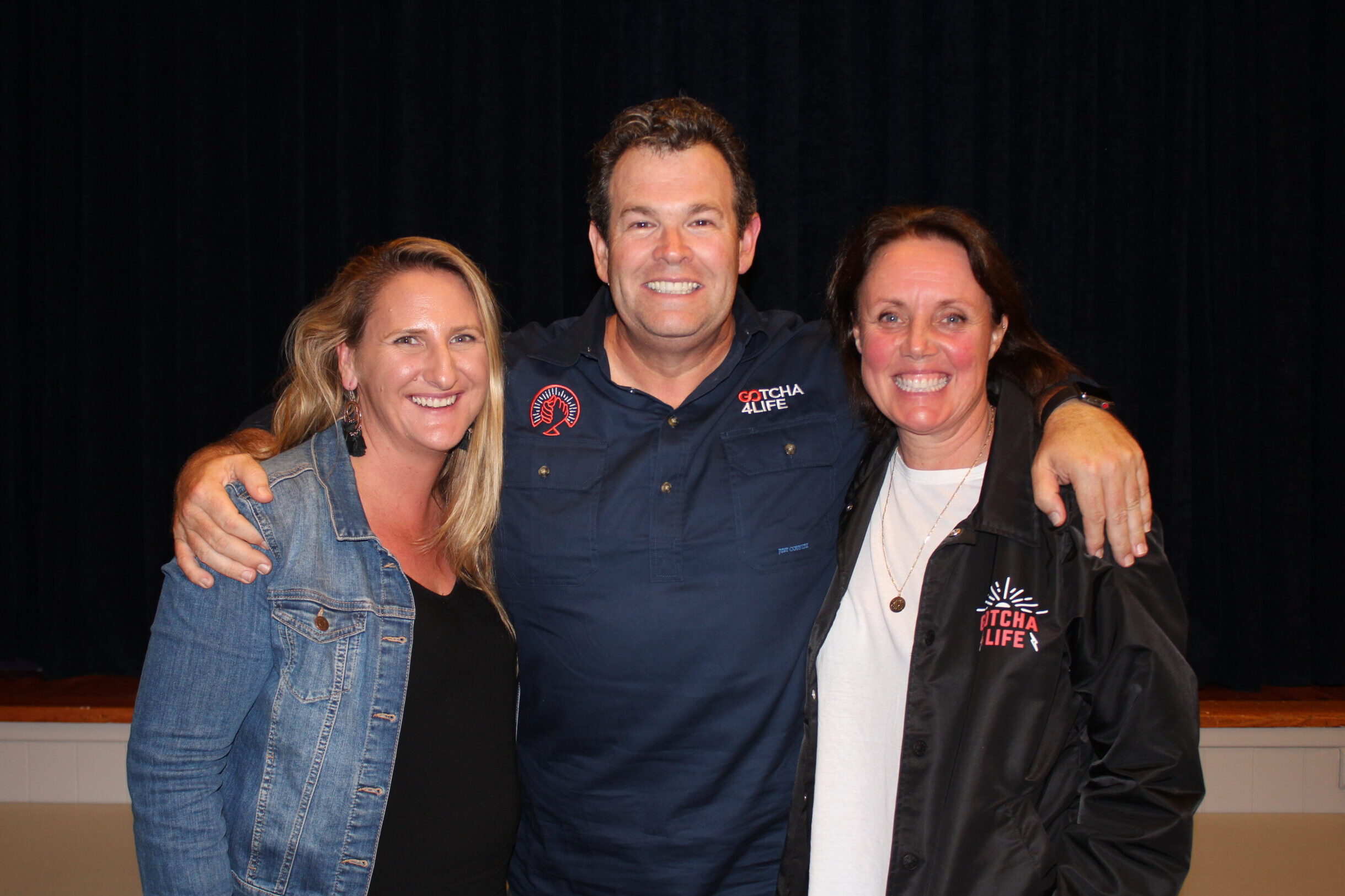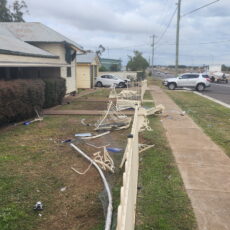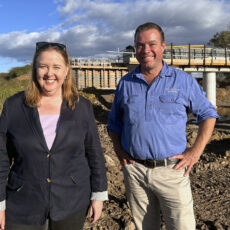Television and radio personality Gus Worland visited Narrabri last week as part of the Tough Enough program.
Mr Worland was the host of ABC’s Man Up docuseries and, along with his wife Vicky, founded the Gotcha4Life organisation.
As part of the duo’s efforts in suicide prevention, Mr and Mrs Worland also created the Tomorrow Man and Tomorrow Woman workshops, which toured Narrabri earlier this month.
Mr Worland visited the local 2Max FM station, Wee Waa’s Imperial Hotel and the Narrabri RSL Club, speaking on the importance of mental fitness.
“We’re losing too many people to depression and anxiety, and we need to reduce the stigma surrounding mental health if we want things to improve,” he explained.
“So, I like to call it ‘mental fitness’ instead, because our mind really is a muscle that we need to consistently work on and keep healthy.”
One thing that can contribute to poor mental fitness is unhelpful stereotypes, especially around social expectations and gender norms.
Mr Worland’s three-part television series has been streamed more than 91 million times, which he interprets as a genuine global interest in challenging these harmful gender stereotypes.
But, approaching such delicate conversations can be uncomfortable, Mr Worland explained.
“All I’m here to do is pass on the things I’ve learnt about mental fitness through my Man Up experience, in hope that it helps people open that important dialogue,” he said.
“I certainly don’t want to come into these towns and act like I know everything on the subject.”
Mr Worland finds that such conversations are generally a more awkward experience for men, especially in the country.
“Women are usually very good at sharing, but if you’re a man who was never taught those skills, it can be really hard,” he said.
“So instead, Aussie blokes tend to bottle up any real emotion and rely on banter.
“What we want to do, is help them move beyond the banter into more meaningful conversations.”
According to Mr Worland, approaching mental fitness can even be as easy as assessing the rules we live in line with, and asking if we’re happy with them.
“You’ll find about 85 per cent of the social rules we abide by probably make sense, but there’s some – like ‘men don’t cry’ – that are simply outdated,” he said.
“But the good news is, the rules can be changed to help us live the mentally healthy lives we deserve.”
In geographically isolated areas, including rural Australia, Mr Worland has found that these outdated ideals tend to be more ingrained.
“That’s why programs like Tough Enough are so important, so that regional citizens can hear from people like myself and the Tomorrow Man and Tomorrow Woman facilitators,” he said.
“We’re losing nine men and three women to suicide every single day – and those numbers are even higher among the older generations and indigenous Australians – things need to change.”
Throughout his presentations in the local area, Mr Worland spoke about the idea behind his not-for-profit Gotcha4Life.
“Loneliness is the catalyst of poor mental fitness, and it drives a lot of people to take their own lives,” he said.
“But I believe everyone has at least one person – a friend or family member – who has their back no matter what, someone who’s got you for life.”
Mr Worland explained that, too often, people simply dismiss the mental health conversation as being “too big to tackle”.
He encourages you to start small, with the people you’ve got for life.
“Establish your crew, the people closest to you, and start there,” Mr Worland said.
“Open the conversation, check on your loved ones and make sure they know you’ll be there if they ever need to talk.”
Beyond that, Mr Worland suggested seeking out local services that can help in times of need.
“We can always upskill ourselves when it comes to mental fitness – groups like the Rural Adversity Mental Health Program offer plenty of educational opportunities that can help you improve the way you approach these deep conversations,” he said.
“But, as a general rule, we have two ears and one mouth, so we should always be trying to listen more than we speak when someone in crisis opens up to us.”
To wrap up his presentation, Mr Worland asked the audience to take out their phones and open their contacts list.
“Scroll through it until you find a loved one who you haven’t spoken with to at least a month,” he advised.
“Now send them a text that says exactly this: ‘I love you, I miss you, I look forward to seeing you again soon’.”
Mr Worland said that this first step may seem daunting, but it is a great way to let them know you’ve got them for life.
He hopes that by encouraging local people to be “open, honest and vulnerable”, he can help improve how our region approaches the subject of mental fitness.
Get in touch with the Rural Adversity Mental Health Program (RAMHP) on 02 6363 8444 for more information.
To order photos from this page click here










